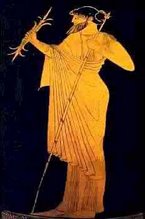
Ok, you have purchased your ancient coins and whether ancient Roman coins or ancient Greek coins, you most likely have a handful of objects you cannot identify! What now? First of all, don't panic. Please follow my instructions and let's see how we can resolve the problem. My name is Jerry and I have cleaned thousands of coins. I have dipped coins in almost every imaginable solution known to man. I do not encourage this because there are dangers inherit in ALL cleaning methods. I am willing to share with you what I have learned and will caution you as we share information. Why am I doing this! Very simple. I love people and I love to teach. In fact, I am a retired college art prof who was bitten by the ancient coin bug a few years ago. I enjoy both ancient coins and ancient artifacts. I clean ancient coins of all varieties but ancient romans is really my bag as they say. Now. let's get started.(1) Ancient coin (DW) distilled water soak. Whether Roman coins or Greek coins, the simplest method I know of is the DW (Distilled Water) soak. Purchase the cheapest ( WalMart?) gallon of DW you can find and allow your coins to soak in the DW for a few days. Some of the coin's encrustation may be loosened with the DW. This is worth trying because it will work on a few coins on occasion. I wish this method worked on all dirty Greek and Roman coins. It is by far the safest technique. (2) Ancient coin scrubbing. The second simplest method I know for cleaning ancient coins is to scrub with a toothbrush and a bar of soap. I have found that quite a few coins will clean up by applying a bit of elbow grease to the old toothbrush loaded with soap. Try this method after you try the DW soak. If you succeed, then soak the coins for several hours in clear clean water. Change the water several times. After the soak be sure and dry the coins with a soft cloth. I hope this method works because it is also safe and easy to perform. (3) Ancient coin olive oil soak. Olive oil? Yes, olive oil. The theory is that the oil permeates the ancient coins and softens the encrustation. How long should I soak the ancient coins? Begin by soaking for at least 12 hours. Remember that all coins will not relinquish their encrustation at the same rate. Remove each coin, one at a time, and apply method one and see if the encrustation has loosened. Some people allow their coins to soak for weeks. I simply do not have this kind of patience. (4) Ancient coin cleaning with TSP (Tri Sodium Phosphate). Sounds like something that would kill an elephant and would in the proper quantity! Avoid inhaling and PLEASE read the container precautions. TSP can be found at the larger building supply stores and is used for cleaning, etc. Again, read the precautions! Mix about one tablespoon of TSP to one pint of water. Be sure and use a plastic or glass container. Place 1-3 coins in the container and allow the ancient coins to soak for about 10 minutes. If you have success then you can increase the number of coins and you may want to adjust the strength of the mixture if the coins appear to be eroding. Follow the containers directions and repeat the process until the coins are clean. Do Not leave the coins in the solution too long! The degree to which the coins can be cleaned using any method is contingent on the quality of coins you have purchased and the degree of encrustation. When and if successful, you will still need to perform element #2 above. Please do not allow any of the ingredients to remain within the reach of children or pets.(5) Ancient coin electrolysis cleaning. Electrolysis? As in electricity? Yes! This is the method I like the very best and employ in cleaning about 99% of my coins. ANOTHER WARNING! I am speaking of DC only! Not AC! Electricity will kill you dead in rather small amounts. Here, I am going to depart to some degree and ask you to visit another site to learn more about electrolysis. I created the site about two four years ago and the degree of interest has increased to the extent that we now have over 625 members and that includes electrical engineers and electricians. We have plenty of information about electrolysis with illustrations. We have Greek coin enthusiasts as well as Roman coin enthusiasts. The URL is as follows: http://groups.yahoo.com/group/CoinZappers You will find a plethora of information as well as the friendliest members you have ever encountered. At CZ (CoinZappers) you can ask ALL the questions you wish. See you there! .

No comments:
Post a Comment